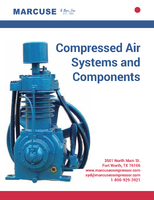Conference focuses on economic cooperation between U.S. and EU.
Press Release Summary:
In cooperation with European Standards Organizations, ANSI held 2 days of meetings addressing standards and conformity assessment in support of U.S.-EU trade. Discussions during Supporting Transatlantic Trade conference centered on use of private-sector standards and conformity assessment programs to facilitate smart regulation and harmonize cross-border requirements. Conference also highlighted successful public-private partnerships which characterize regulatory process on both sides of Atlantic.
Original Press Release:
ANSI Conference Highlights Standards and Compliance Programs to Strengthen Economic Cooperation between U.S. and EU
The American National Standards Institute (ANSI), in cooperation with the European Standards Organizations (ESOs), held two days of meetings in Washington, DC last week to continue a nearly twenty-year dialogue on standards and conformity assessment in support of U.S.-EU trade. The meetings centered on the September 24 conference Supporting Transatlantic Trade: Standards and Conformance for Business and Regulators.
The event brought together the ESOs comprised of the European Committee for Standardization (CEN), the European Committee for Electrotechnical Standardization (CENELEC), and the European Telecommunications Standards Institute (ETSI), as well as representatives of six U.S. government agencies, two European Commission (EC) Directorates General, and the European Free Trade Association (EFTA). In total, nearly seventy individuals representing the private and public sectors were in attendance.
Over the past twenty years, these gatherings have evolved to their current "four-sided table" format, which includes ANSI (both private and public sector representatives), the ESOs, the EC, and EFTA.
According to Gary Kushnier, ANSI vice president of international policy, "This format has proven highly effective in ensuring that all of the appropriate private and public sector standardization experts from the U.S. and EU are at the same table to successfully address intricate transatlantic standards and conformance issues."
Discussions during the Supporting Transatlantic Trade conference centered on the use of private-sector standards and conformity assessment programs to facilitate smart regulation and harmonize cross-border requirements. The conference also highlighted the successful public-private partnerships which characterize the regulatory process on both sides of the Atlantic, and included speakers from the U.S. and Europe representing industry, government, private sector standards organizations, and conformity assessment bodies.
ANSI president and CEO Joe Bhatia provided the luncheon keynote address, noting the substantial value transatlantic trade holds for the U.S. and Europe. Mr. Bhatia provided statistics demonstrating the significance of trade, direct investment, and job opportunities between the U.S. and Europe, highlighting the bidirectional gains that can achieved through increased U.S.-EU regulatory compatibility.
Bhatia encouraged greater industry and regulator engagement in the standardization community, explaining, "Effective utilization of standards and conformity assessment promotes the global competitiveness of all businesses. Transatlantic cooperation will improve the bottom line of our businesses - which is clearly a top priority in today's tenuous economic landscape."
According to Bhatia, an ongoing dialogue between ANSI, the ESOs, the U.S. government, the EC, and EFTA is of critical importance to maintaining private-sector leadership in the standards and conformity assessment arena, especially when it comes to addressing challenging issues such as those identified by the Transatlantic Economic Council (TEC) and the U.S.-EU High Level Regulatory Forum.
In addition to the conference program, attendees heard a summary readout from the previous day's ANSI-ESO Joint Presidents' Group (JPG) meeting. David Miller of the American Petroleum Institute, ANSI-JPG co-chair and chair of ANSI's Regional Committee for Europe, highlighted the ANSI-JPG discussions, particularly focusing on access to standardization by small and medium sized enterprises (SMEs); areas of regulatory cooperation including e-accessibility, import safety, and software defined radios; developments in the Future Landscape of European Standardization (FLES); and modes for improved visibility of existing and upcoming transatlantic standards and conformance activities.
The dialogue between ANSI and the ESOs will continue in 2009 with scheduled leaders meetings as well as a potential conference on Building Information Modeling (BIM).
Supporting Transatlantic Trade was hosted by the U.S. Chamber of Commerce and BUSINESSEUROPE. Conference presentations and proceedings will be made available in the coming weeks on the event page.




